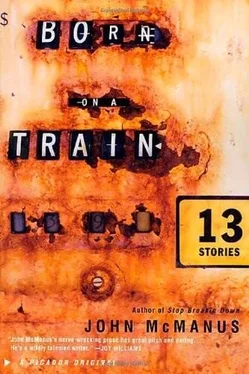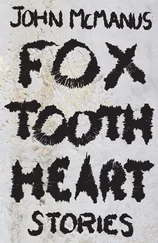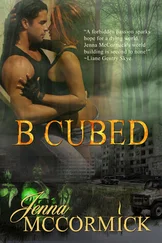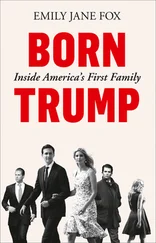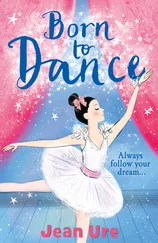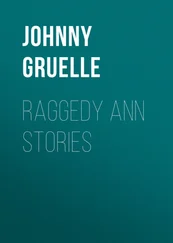I saw the Pacific Ocean today. I don’t know what you were thinking while my eyes reeled in the waves but you weren’t thinking about me; I didn’t feel it. I hope you know the smack idea was a joke. We’re done with that, you know.
I hated her for being able to write to him, for him to listen. She really was pretty, I suppose. I liked going to the mall with her so all the straight boys would envy me; I liked it when she whispered, in the middle of the night, on the roof with me, when she couldn’t sleep.
I just want to pretend we’re sixteen again, said Patrick. Take any day from that year. I want to make this that day.
So we had cheeseburgers and fries at Wendy’s. We went to West Town Mall and bought some nitrous whippets and got high down by the river ten times each. We rolled a joint beneath the railroad trestle and said we wished our older brothers were home from college to buy us beer. We drove up and down the strip and looked at U.T. girls. Patrick shouted penis! at one with a green backpack. His eyes met mine. I almost took his hand.
We don’t have any money, he said. If we were sixteen, we’d have money.
I parked right in front of the bar.
I don’t want to be sixteen anymore, he said in the booth at Hanna’s; we had a Turbodog apiece. I asked how old he wanted to be now. Each time he said I don’t know, it was the saddest thing I’d ever heard.
We could be twelve and run away to Chattanooga, I said.
I think I want to be ninety, he said. Then I can just sit there. I won’t have to do anything at all.
I had sat down opposite him instead of beside; he had chosen first, so it was my decision. I don’t know why I didn’t tell him how I felt. I wouldn’t even have needed to think of the words myself; I had a dozen love letters to choose from. We couldn’t afford another beer. We couldn’t afford a tip.
I’ve got nineteen cents, said Patrick.
Why didn’t you ask your dad for cash?
He’s only got enough money to last him till he’s sixty-six. He figured it out on paper.
I shrugged; I was broke too, on unemployment at the time, which wasn’t much but it bought me a beer now and then.
Please tell me there’s Steel Reserve at the house, said Patrick.
I think there’s some.
We can use your card at the package store.
It’s maxed out.
Please Jesus is there still a Steel Reserve. We walked up the hill to the house, and there were four. We drank them on the roof till they were gone. Patrick said he had a plan, and I followed him downstairs and back outside. As we walked down Clinch across the viaduct, the mountains were as hazy as my vision. We walked forever. We must have walked two miles. The pawn shop man with two bronze eyes and a steel-capped finger held Patrick’s engagement ring up to a slit of light and frowned. He offered forty dollars. I was tired by then.
Forty-five, Patrick said in the dark room.
Forty, the man said.
Forty-two.
Forty.
Forty plus three quarters so I can buy a Coke. For the love of God.
I felt all sorts of years breathing in that space. Did the pawn man know he could have opened his blinds to see a bare mulberry tree, squirrelly power lines, the raised interstate? I didn’t say a word as Patrick’s fortieth dollar came to him in silver change. We were rich; we brown-bagged liquor down Broadway beneath the freeway. Horns were blowing everywhere like chopped-up trains. Outside the Salvation Army a couple screamed at each other. I wonder what that felt like. Under the bridge the road turned upside down.
I wish I still had my skateboard, Patrick said.
Looping like a wheat sheath, his straw hairs and his shirt pulled toward the earth — I wished so too.
If we keep walking this way for six hundred miles, he said, we’ll be in New Orleans.
But first we’d have to cross the river.
He nodded and said, I want to cross it on a railroad bridge.
If we really did it, we’d cross on a real bridge.
What’s not real about a railroad?
Nobody goes on it, I said, just coal.
Leila took the railroad out to Washington.
No she didn’t. She rode the bus. The railroad’s like two hundred bucks.
Not this time, he said. A long time ago.
We were halfway home. I wondered if there was a new letter yet. By now I felt bad about the entire situation, but Patrick was looking at me more, and I had a chance with him, I thought. I knew I needed him more than Leila did, and anyway her letters were getting weird. She wrote about auras and said hers was a deep, dark red. Patrick didn’t need to be worrying about that.
She called while Patrick was gone buying gin. It was dark outside. Rory, she said to me, I’m so glad to hear you.
Glad to hear me what?
Just to hear you, she said, but I didn’t trust her.
Where are you?
In my bedroom.
She said Patrick had sent her three letters. Acts like he hasn’t seen mine.
He saw them, I said.
Did he like them?
He’s not much of a reader.
Where is he?
Longbranch, I said. Went to meet a friend of his.
Who?
I don’t know.
You know all his friends, she said. You both have the same friends.
I can’t remember her name.
For a moment Leila’s aura changed from red to cold, fiery blue. We recalled the broken olive jar together. It conjured the taste of soot only for me; Leila remembered the glass. The Northwest was rainy and cold that time of year.
Do you want to leave your number?
I’ll try back later, she said.
She left me with nothing to do but hang the phone up and walk outside. My stomach hurt; I really was uncomfortable. Patrick brought back whiskey in place of gin. It fits my mood, he said. The bottle had come with a free pack of cards, and we played some rounds of poker. I thought of unplugging the phone, but I didn’t even need to do it; she never called again.
The last day before Leila had departed, we drove to Pigeon Forge to race go-carts, just the three of us. We could still afford things then. We went to the track by the waterfall. Mothers watched us speed around their children. I was so high I forgot I had a brake pedal. A man was bungee-jumping at the tower next door; he screamed past my helmet’s glass and Patrick won the race. Afterwards we ate funnel cake with strawberries, and Leila said, Forty-eight hours, because that was how long her trip would take.
You can write me a letter the whole time, said Patrick. We were walking on the sidewalk past hotels.
What a selfish idea, she said and jumped up to ride his back. She pointed at me and said, I’ll write to him instead. Every day. She beat on Patrick’s shoulders. He spun around five times until she giggled and fell off. You can’t have fun like this while I’m gone, she said. Promise you’ll save it all for when I’m back.
I promise, he said.
Promise you’ll feel just wretched the whole time till I return.
We’ll be completely miserable, I said, and Patrick just smiled. He was sucking on a Dolly-pop. By then we were driving. Patrick had his finger on the wheel’s pulse, and through him I felt every sports car that passed us on the parkway. I’m glad I’m leaving him with you, Leila said to me. Patrick touched his fingerprint to her labret. We drove up the mountain on a back road; soon it turned to gravel. Patrick pulled us off in the woods by a creek overgrown with mountain laurel. We had forty-ouncers in the trunk.
I want to build a dam, Leila announced.
I took my shoes and socks off and waded with her into the cold water. The rocks were slippery with algae. We filled gaps between large stones with sand and gravel. Patrick sat on a root and watched us quarry rocks from beneath the water. It was frigid; we were standing near its source. I chose bigger, stronger stones than Leila did, and they blocked more water, bridged the streambed faster. They were cold and calcified, and Patrick could see the flexing of my frame. I hurried with the gravel. I was winning. Mountains had risen so I could build that dam.
Читать дальше
